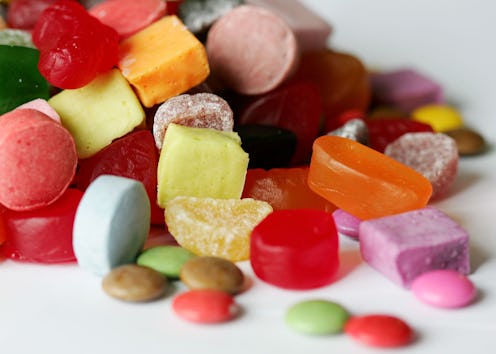News
Does The FDA Regulate The Word "Natural?"
On Wednesday, the FDA offered up its latest "Consumer Update": allergy sufferers should be careful to drive after taking antihistamines, they warned, because the drug might make them drowsy and impair their ability to drive safely.
The warning comes seven months after the FDA asked sleeping-pill manufacturers to lower their standard dosage for the same reason. Sleeping pills have been used, in some form, for more than a hundred years. In the last two decades, they have been plagued with links to hallucinations, cancer, and drug dependence.
The FDA is the eyes and ears of the American food industry, almost maternal in its need to make sure you're staying safe and healthy. Sure, you don't know exactly what chemicals live in your toothpaste, are squeezed into your lipstick, or have been injected into your steak. But they do. Don't they?
Not so much. The FDA freely admits to letting a lot of what you eat, drink, and wear get away with pretty much anything.
Here's your typical morning under the FDA's watch:
8:30 AM: Eat your yogurt, because you're healthy like that. Or are you? Most yogurts contain something called "natural flavor," which evokes images of open fields.
In reality, "natural flavor" is actually an add-on ingredient inserted after a product has been created, and it can mean pretty much anything. Legally, "natural flavors" are required to be "minimally processed," but you could process earwax a tiny bit and label it "natural flavor." Or grass. Or, like, goat urine.
The FDA did launch an investigation briefly into the term "natural" the 90s, but gave up due to "resource limitations and other agency priorities.” However, they did conclude that the only requirement for natural flavor was a lack of "artificial and synthetic additives."
9:00 AM: Put your face on. The FDA doesn't regulate cosmetic products as much as you'd expect.
See, cosmetics don't legally have to face safety testing before they hit the market — they just need to bear a little note that says that they're untested. Some lipsticks contain lead, and some baby shampoos formaldehyde — both of which have been linked to cancer. Sure, cosmetic companies are meant to label stuff, but the FDA doesn't double-check all that much.
The FDA does need to approve additives before they're sold in cosmetics. For example, they've approved carmine, which is oft-used in lipstick and eyeshadow, and also appears as a red food coloring. Stop eating before you read this next bit: It's made by crushing red insects. The resulting paste is carmine. The FDA has also approved shellac, which is derived from insect excretion. No lie. It's what makes pills and candy shiny, and is in some fruit. Like apples.
Apparently we each use roughly 10 products on our bodies each day, exposing us to about 136 "unknown chemicals."
11:00 AM: Take an all-natural supplement like ginseng. In a world where everything seems to have come from an insect or a factory, isn't it reassuring that you still have herbal supplements to fall back on?
The only thing worse than the FDA regulating insect poop is the FDA not regulating an industry at all. Just ask people who took birthwort, an oft-used "natural" supplement for weight loss, cramps, arthritis... the list goes on. You guessed it: last week, they discovered it had strong links with cancer.
The FDA ignores the herbal supplement industry entirely . So you actually have no idea what on earth is in actually in stuff like evening primrose oil, flaxseed oil, some green teas, or St. John's wort.
